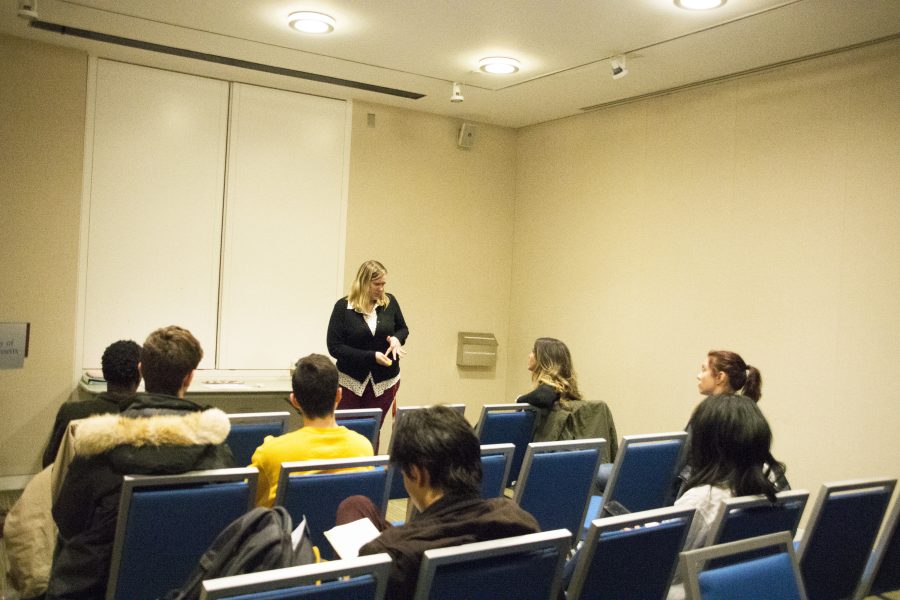University of Massachusetts Boston– At an an opioid overdose prevention training session held Nov. 29, Katie Weixler, a drug user health educator who led the discussion, said in order to prevent opiate overdoses in oneself or someone else, one needs to use Naloxone. Naloxone, often recognized by its brand name Narcan, is readily available in pharmacies and an individual prescription is not required, according to Victory Program, the drug prevention center that Weixler works for in Boston.
“We will refer them to a high level of care… We don’t kick anyone out, it is very rarely that someone is not welcome back in our program and that’s because we understand relapse happens,” Weixler said.
UMass Boston’s University Health Services and Collegiate Recovery Program (CRP) sponsored the event, which was held Nov. 29. Weixler, a UMass Boston alumna, told the small group of students and faculty who attended that Massachusetts currently has the second highest overdose rate in the U.S. after Ohio: “[This] means that our death from opioid-related deaths is second-highest,” Weixler said. “Last year… in Massachusetts alone, there were over 2,100 deaths related to opiates.”
The state’s opioid epidemic has been a topic of discussion over the past couple of years. One of the main reasons for this epidemic, as experts and researchers have found, is the medications that are prescribed to treat severe pain, like fentanyl and morphine—both of which are opioids. It is commonly recognized by drug experts like Weixler that these opioid treatments have a high risk for addiction and dependence.
According to Linda Dunphy, director of University Health Services & Wellness Program and the Recovery Support Program (UMB Recovery), the opioid epidemic is “a public health crisis.”
At the event, Weixler explained that while these drugs are used to treat pain, one can experience severe withdrawal symptoms when they stop taking them. Sometimes, patients can start to re-experience some of the pain that an opioid medication was supposed to treat when withdrawing, leading many to depend on the drug in order to avoid pain. “In that sense, an overdose is like a chemical brain injury,” she said.
First-year student Charles Gareginyan, who was at Weixler’s training told The Mass Media that the session was “very informative for people who aren’t experienced with drug-use or who don’t know much about drugs.”
When asked what made him attend the event, Gareginyan responded by saying he wanted to be well-informed and that “previous and personal experiences” led him to do so.
Weixler said that she’s noticed throughout the training sessions she’s conducted “usually, if people are in the room, they’re here for a reason… The epidemic’s so large right now that its hard to find someone who doesn’t know someone who’s impacted by an opioid addiction or an addiction in general.”
According to Dunphy, UMass Boston’s CRP does not provide students with Narcan directly but aims to provide information through trainings like Weixler’s. Dunphy told The Mass Media that currently 147 students are associated with the campus’ CRP program.





















































